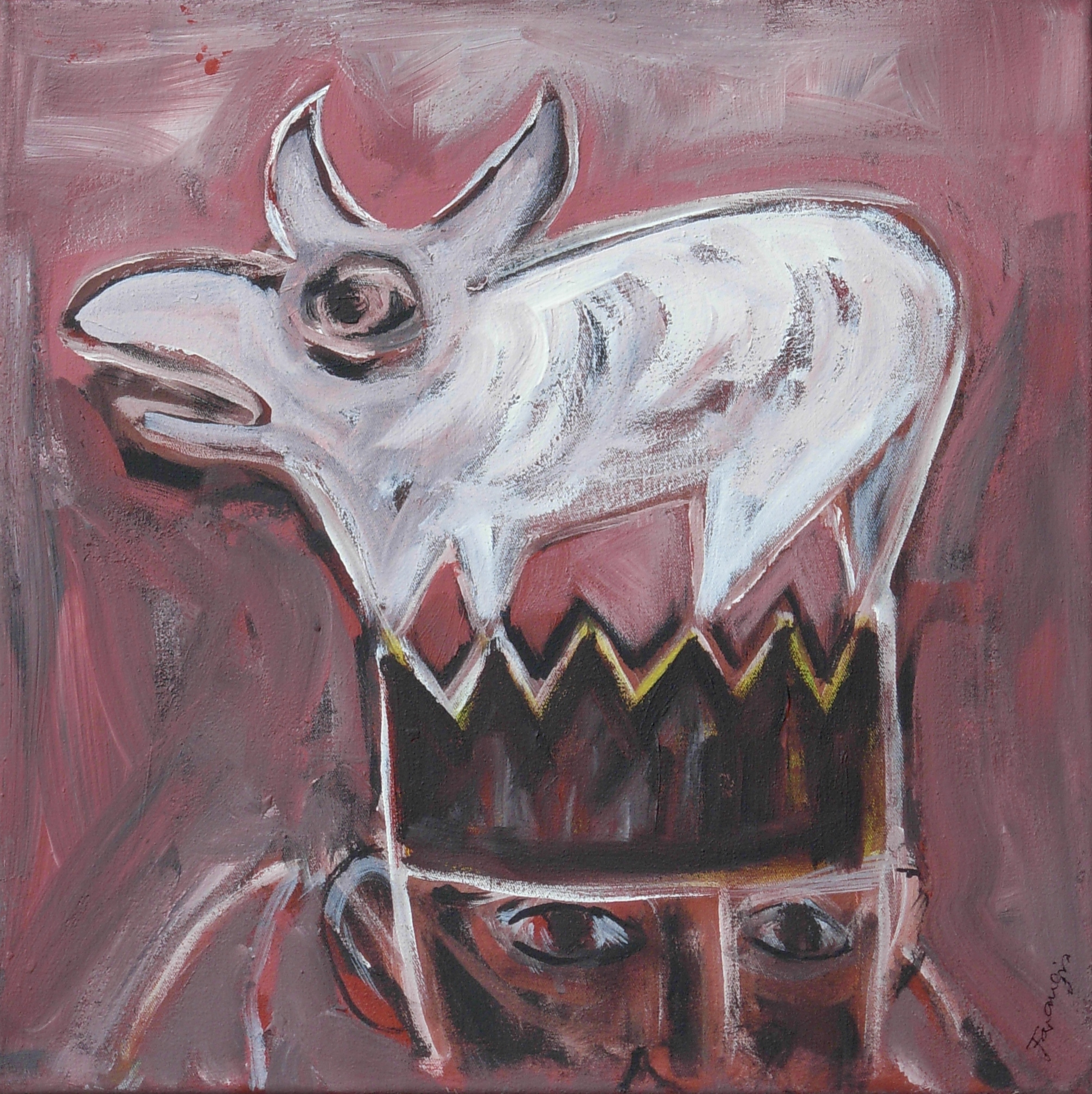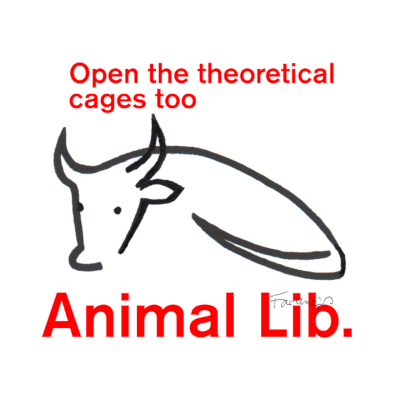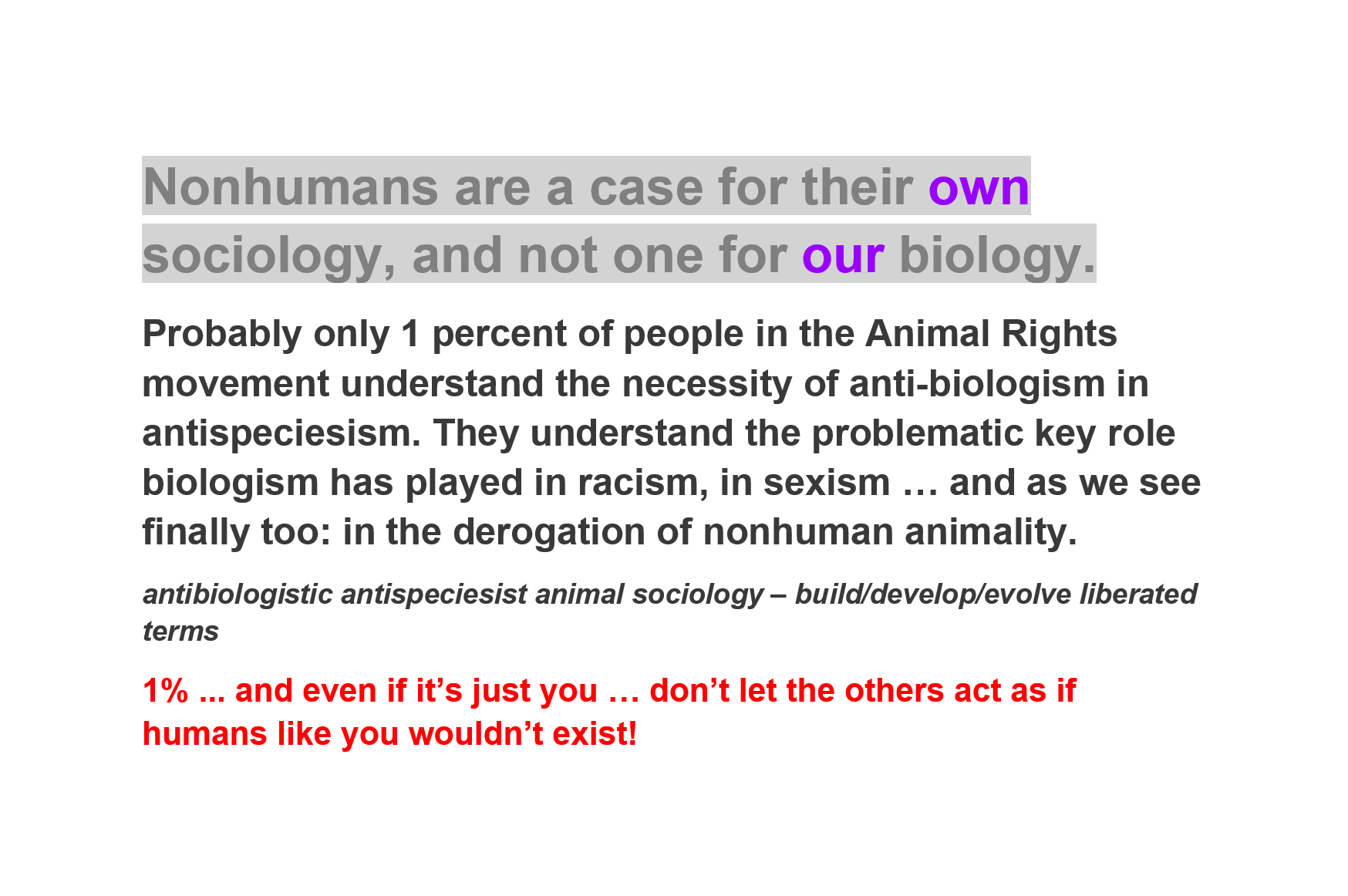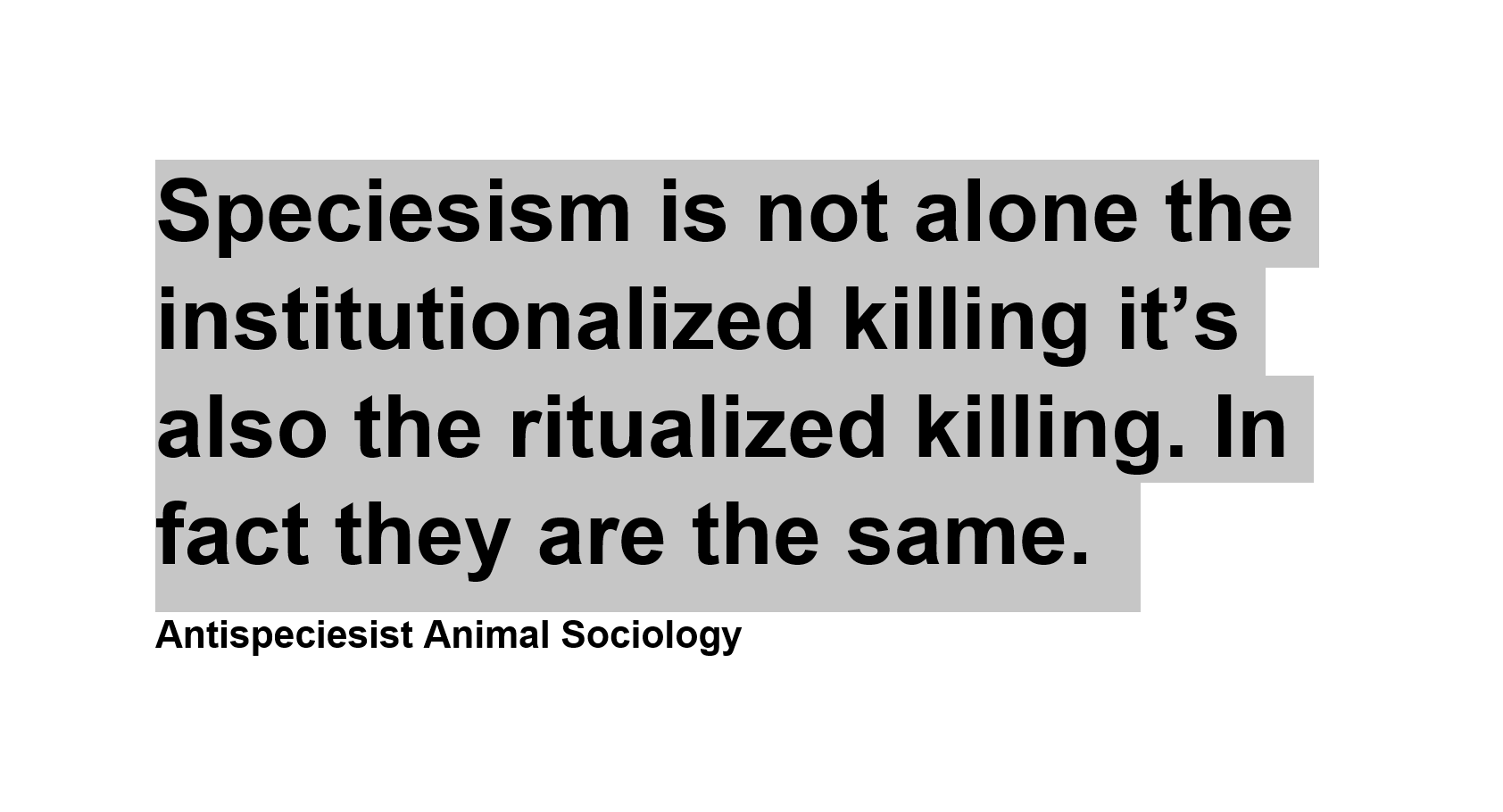
A very biologistic term: “artgerecht”
The German language holds a term that describes that there can be things/actions by humans that are “artgerecht” for nonhuman animal species. That there human actions/treatments that are suitable for a specific species. This term stems mostly from animal agriculture to legitimate their imprisonment and killing of nonhumans and from zoologists classifying nonhuman animals by defining in a reductive way their specific typical “needs” (…).
Humans wouldn’t want to reduce themselves onto categorical needs such as: foraging, territorial behaviour and reproduction. The term “artgerecht” exactly invites you do see nonhumans and their behaviour basically in such reductive way. All behaviour is classified and traced back to some categories humans hold a definitory might over.
Ecological complexity in regards to nonhuman animal sociology is not really a subject for anyone who applies such typical form of biologistic speciesism. The tragic thing is that many people in the German speaking countries use exactly this term when they seek to defend nonhuman animals, so this kind of terminology is not being reflected critically at all. Like they want justice for nonhumans, but they also want to keep pigeonholing nonhumans biologistically in such fundamental ways.
Meaningful, super complex behaviour becomes belittled with clichés of nonhuman species behaviour.
It’s a term that leaves nonhumans in their situations where they are exposed to human definition, when allies use such term, they are not making these settings visible.
***
“Artgerecht” bases much on the concept of “instinct” – which is one of the most questionable concepts to encounter nonhuman animals and animality with
Fragment continued …
“Artgerecht” alsways means the setting is given or influenced by humans.
Interesting is also that the rethorics of the > deliberate or wanted impact of human actions depending on species > which implies that a nonhuman is or should be treated (indirect passive role attributed to nonhumans) “artgrecht” in a manner predertermined by frames humans construct and prepare for the nonhuman, are always scrutinously chosen fitting to each different setting:
labs, farms, households, … and that dependent on how people classify each of the species …
So “artgerecht” means: any generic biologistic speciesism, while it consciously pretends to be meant to some advantage for the nonhumans within contexts of human definitory spaces.
It never means the nonhuman animals are understood as self-creative active agents in any environment in a sense beyond instinct, beyond biologistic and/or any other determinism for nonhuman animal behaviour.
Any behaviour becomes subject to reductive interpretations. No open space in terms of definitions is allowed from the human defining side.
***
Fragment three
“Artgerecht” always means the setting is given/influenced by humans.
Interesting is how rhetorics, that imply that a nonhuman is or should be treated (…) “artgerecht”, tend to just modify ideas/institutions of domination.
The details for the staged normalcy are always chosen carefully dependent on setting and animal group:
labs – agriculture – captivity – mingling with wildlife.
The idea behind the progress supposedly aimed at by the “artgerecht” treatment/measure (…) always sets forth that a nonhuman is basically instinctual.
This is the old prejudice about nonhuman animality not be self-creative….











